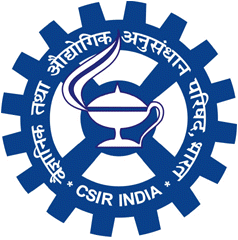Treatments Focus
Mood disorder

We all have experienced some brief periods of sadness, irritability, or euphoria. But the feelings of mood disorders such as major depressive disorder (MDD)or bipolar disorder (BD) are incredibly unique and hard to live with. They’re characterized by a set of symptoms that not only cause a person to undergo social distress but also impair their day-to-day routine activities. What’s concerning is the untreated symptoms which have severe and devastating consequences.
In India, every seventh person suffers from some form of mental disorder, with depression and anxiety complaints claiming the highest percentages. According to a study published in the journal “The Lancet Psychiatry“, nearly 45-46 million people in 2017 had depression and anxiety disorder, with a relatively higher proportion in the female adult population. In addition, an outrageous 7.6 million people suffered from bipolar indications.
Since mood disorders can be caused by multiple factors, including age and genetics, they are complex and difficult to diagnose. Fortunately, however, they are fairly treatable via a healthy self-care routine, counseling, and medication.
Symptoms of Mood disorder
People with mood disorders can present with diverse symptoms depending on the type of mood disorder, variable severity levels, and the difference in the duration of individual episodes. But normally, you will notice:
- Unremitting sadness
- Feelings of guilt and hopelessness
- Low self-esteem
- Loss of interest in previously enjoyed activities
- Irritability or restlessness
- Lack of appetite
- Difficulty sleeping or sleeping more than usual
- Increased tiredness
- Trouble concentrating and making decisions
- Reckless and risky behavior (e.g., excessive alcohol use, promiscuous sexual behavior, etc.)
- Suicidal ideations (this is a medical emergency)
Call your doctor immediately if you think you or someone close to you is struggling with a mood problem , especially having suicidal tendencies. Remember, these aren’t just ordinary mood symptoms that disappear on their own, though they get worse over time.
Dizziness or lightheadedness, or unsteadiness
Nausea
Vomiting
Headache
Causes of Mood disorder
There is no explanation for why mood disorders occur. However, psychologists believe emotional, environmental, genetic, and body factors contribute to the onset and course of mood disorders. These include:
- Hereditary factors
- Low level of brain chemicals, particularly norepinephrine and serotonin
- Side effects of certain medications (e.g., corticosteroids, anti-psychotic drugs, and oral contraceptives)
- Traumatic or stressful life-changing events
- Negative thought pattern
- Clinical conditions (brain tumors, encephalitis, meningitis, Cushing’s syndrome, etc.)
Diagnosis and Treatment
If you think you may have any of the mood symptoms mentioned above, your psychiatrist will review them carefully. They will run a physical exam and lab tests to rule out the physical causes of your symptoms. In addition, a psychological evaluation will help them assess your personality and emotional behavior.
Treatment depends on your diagnosis and usually involves a combination of medication and psychotherapy (talk therapy). Antidepressants, anti-psychotics, or anti-anxiety pills ( such as lithium) may be prescribed to regulate the intensity of your moods while you undergo talk therapy. The type of talk therapy you’ll receive will be tailored to your needs and may include:
- Cognitive-behavioral therapy(CBT)
- Integrative or holistic therapy
- Mindfulness-based cognitive therapy
- Dialectical behavior therapy (DBT)
- Family therapy
- Supportive therapy
For severe symptoms such as suicide attempts, hospitalization may be required
FAQ's :
References:
- Mood disorders—Symptoms and causes. (n.d.). Mayo Clinic. Retrieved May 23, 2022, from https://www.mayoclinic.org/diseases-conditions/mood-disorders/symptoms-causes/syc-20365057
- Mood Disorders | Johns Hopkins Medicine. (n.d.). Retrieved May 23, 2022, from https://www.hopkinsmedicine.org/health/conditions-and-diseases/mood-disorders
- The Biological Basis of Mood Disorders – General Psychology. (n.d.). Retrieved May 23, 2022, from https://pressbooks.online.ucf.edu/lumenpsychology/chapter/the-biological-basis-of-mood-disorders/
- Mood Disorders. (n.d.). Noba. Retrieved May 23, 2022, from https://nobaproject.com/modules/mood-disorders
- Sagar, R., Dandona, R., Gururaj, G., Dhaliwal, R. S., Singh, A., Ferrari, A., Dua, T., Ganguli, A., Varghese, M., Chakma, J. K., Kumar, G. A., Shaji, K. S., Ambekar, A., Rangaswamy, T., Vijayakumar, L., Agarwal, V., Krishnankutty, R. P., Bhatia, R., Charlson, F., … Dandona, L. (2020). The burden of mental disorders across the states of India: The Global Burden of Disease Study 1990–2017. The Lancet Psychiatry, 7(2), 148–161. https://doi.org/10.1016/S2215-0366(19)30475-4
- Mullins, N., Forstner, A. J., O’Connell, K. S., Coombes, B., Coleman, J. R. I., Qiao, Z., Als, T. D., Bigdeli, T. B., Børte, S., Bryois, J., Charney, A. W., Drange, O. K., Gandal, M. J., Hagenaars, S. P., Ikeda, M., Kamitaki, N., Kim, M., Krebs, K., Panagiotaropoulou, G., … Andreassen, O. A. (2021). Genome-wide association study of more than 40,000 bipolar disorder cases provides new insights into the underlying biology. Nature Genetics, 53(6), 817–829. https://doi.org/10.1038/s41588-021-00857-4
- Gene testing to guide antidepressant treatment: Has its time arrived? (2019, October 9). Harvard Health. https://www.health.harvard.edu/blog/gene-testing-to-guide-antidepressant-treatment-has-its-time-arrived-2019100917964
- Genetic Testing and Depression, Anxiety and Bipolar Disorder: Could a Simple Cheek Swab be the Missing Link in Your Mental Health Treatment? – Drbrucekehr.com. (n.d.). Retrieved May 23, 2022, from https://www.potomacpsychiatry.com/blog/genetic-testing-depression-anxiety-bipolar-disorder
- A Genome-Wide Significant Linkage for Severe Depression on Chromosome 3: The Depression Network Study | American Journal of Psychiatry. (n.d.). Retrieved May 23, 2022, from https://ajp.psychiatryonline.org/doi/10.1176/appi.ajp.2011.10091342?url_ver=Z39.88-2003&rfr_id=ori:rid:crossref.org&rfr_dat=cr_pub%20%200pubmed
Related Articles
Book an Appointment to understand how GenepoweRx can help you in treating
Mood disorder
Meet The Doctors
Dr Kalyan Uppaluri
Dr Hima Challa
Your genetics … Your Test ... Your Health Success
It’s always the word of mouth that’s the best advice. Here are some of our…


Our Partners






Professional Partnerships
Government Association

